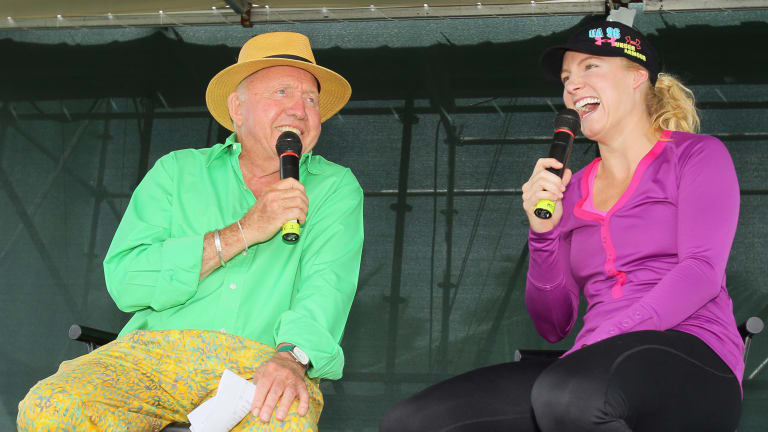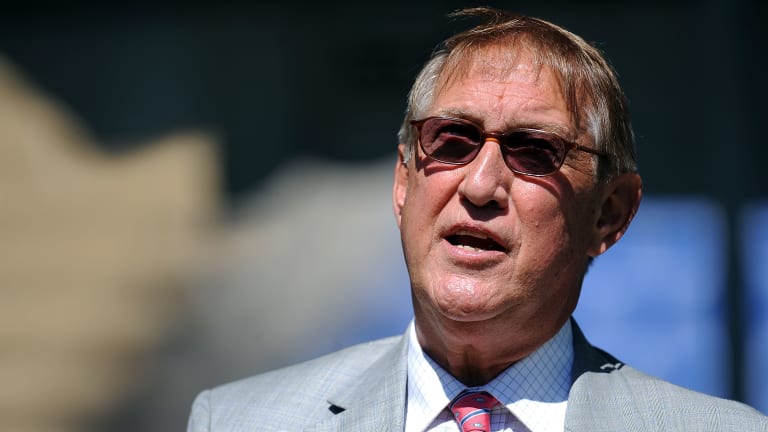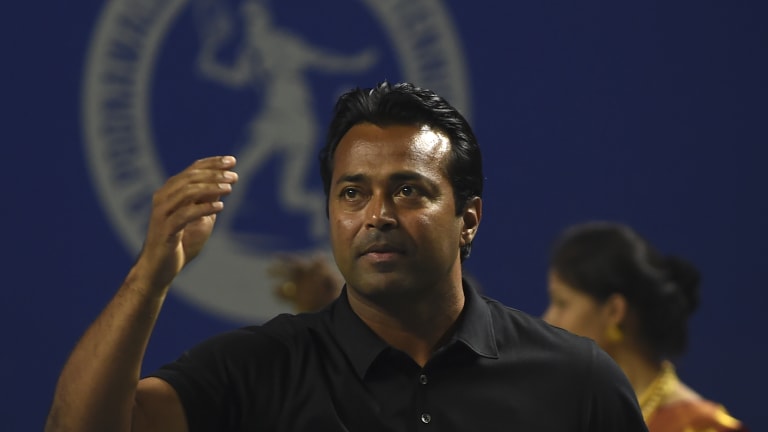Wayback Wednesday, birthday quartet: Venus, Paes, Dell, Collins
By Jun 18, 2020Pop Culture
Venus Williams hits talk-show circuit to promote new book, lands on 'Harper's Bazaar' UK cover
By Sep 14, 2024Wimbledon
Wimbledon without a Williams sister: Imagine that.
By Jun 30, 2024Style Points
Serena and Venus Williams walk the runway at 2024 Vogue World in Paris
By Jun 24, 2024Pop Culture
Barbie will make dolls to honor Venus Williams and other star athletes
By May 22, 2024Style Points
Novak Djokovic, Venus Williams star in new Lacoste 'Play Big' campaign
By May 10, 2024Style Points
PHOTOS: Met Gala 2024 spotlights ‘Challengers’ star Zendaya, Maria Sharapova and Williams sisters
By May 07, 2024Lifestyle
Venus Williams honored by Cultured magazine for on- and off-court cultural impact
By Apr 27, 2024Style Points
Zendaya pays tribute to the Williams sisters in Carolina Herrera gown and white beads
By Apr 19, 2024Social
Maria Sharapova, Venus Williams among stars who honor science achievement at Breakthrough Prize Ceremony
By Apr 19, 2024Wayback Wednesday, birthday quartet: Venus, Paes, Dell, Collins
The two former No. 1s and the two Hall of Famers share a June 17 birthday. Perhaps, nine months earlier, mid-September, there was something dancing in the air following America’s Grand Slam event that triggered the spirit of conception.
Published Jun 18, 2020
Advertising

Wayback Wednesday, birthday quartet: Venus, Paes, Dell, Collins
© 2011 Getty Images
Advertising

Wayback Wednesday, birthday quartet: Venus, Paes, Dell, Collins
© 2009 Lisa Blumenfeld
Advertising

Wayback Wednesday, birthday quartet: Venus, Paes, Dell, Collins
© AFP via Getty Images
Advertising

Wayback Wednesday, birthday quartet: Venus, Paes, Dell, Collins
© Getty Images